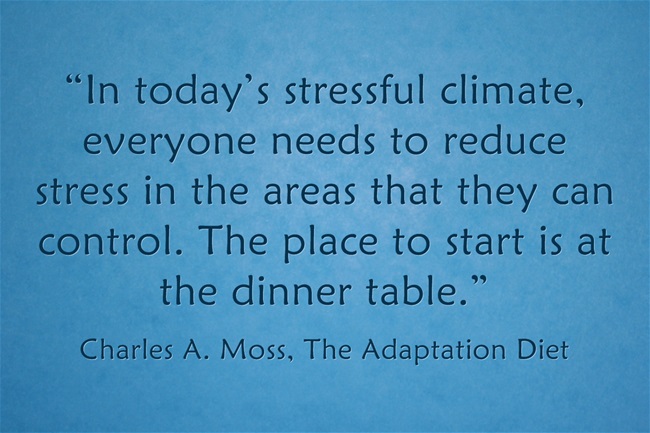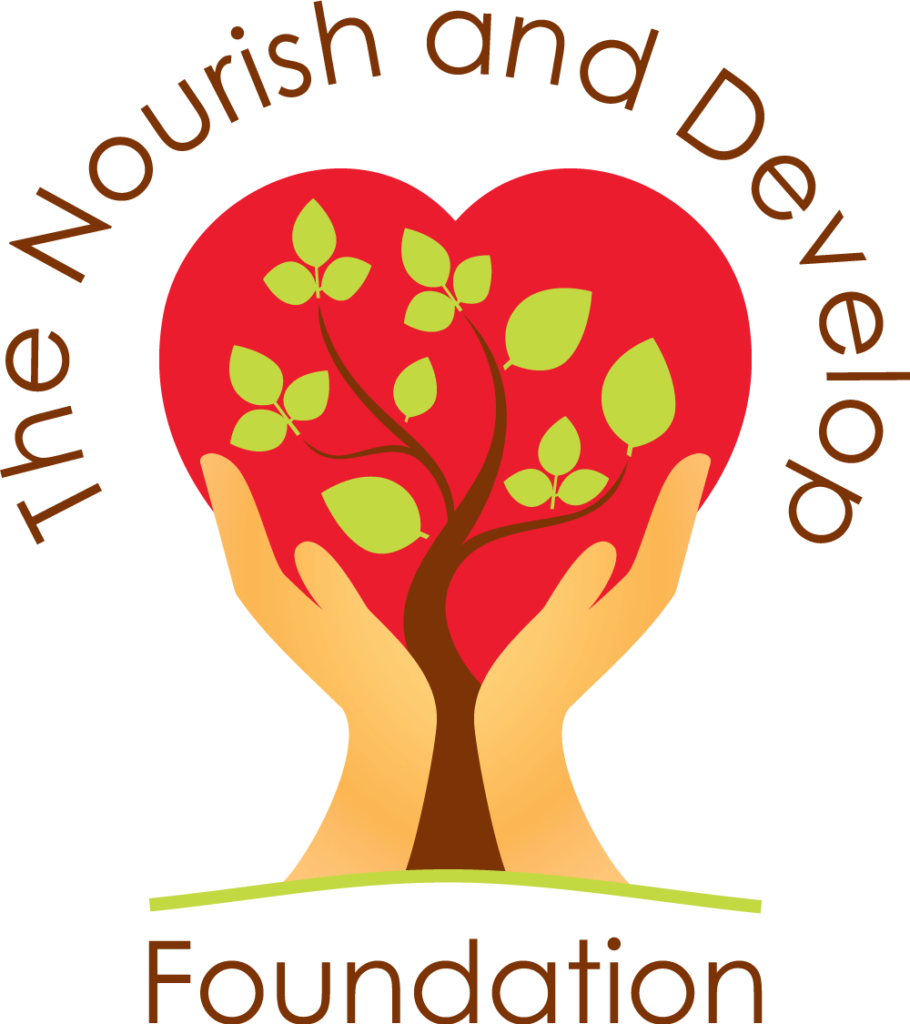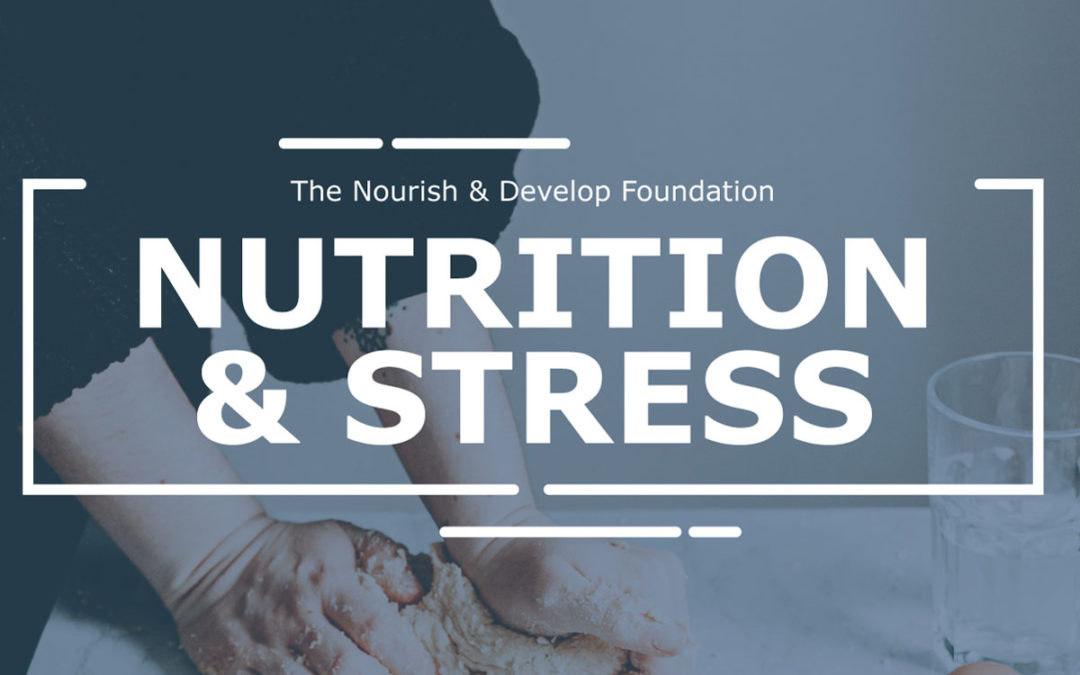We are halfway through March, which happens to be Nutrition Month!
This year’s theme is ‘Personalize Your Plate’ meaning there is no one-size-fits-all approach to healthy eating as we consider our cultural and personal food preferences. We hope you all take some time to reflect on the foods that give you fuel, you enjoy, and make you feel connected. With the continued stress everyone is facing from the COVID-19 pandemic in addition to regular life stressors, we would like to draw attention to the role nutrition plays in combating stress as well as how stress affects our nutritional intake.
nu·tri·tion
noun
the process of providing or obtaining the food necessary for health and growth.
Stress is a normal response to situational pressures and is a part of everyday life. In small doses, it proves to be helpful like when we need to meet deadlines for work or when we are driving and a car in front of us slams on its breaks and we need to make an immediate stop. However, stress causes trouble if it is long-term because it would put the body in a constant state of tension and adrenaline, wreaking havoc on the nervous system.
If this is the case and our body does not return to a resting state, it can be difficult to cope in healthy ways. It can change our thoughts and behaviours to become depressed, anxious, irritable, or withdrawn and can impact our work, relationships, and health. To better manage stress, we can take control by building a support network to vent to, to feel that we are not alone in our struggles, and to receive practical help with tasks. We can also make adjustments to our lifestyle, including our diet, that will strengthen our resiliency and make us feel prepared to take on future stress.
When faced with stress, a very common method of coping with such unwanted emotions is to turn towards comfort foods. Stress causes our body to release cortisol, a steroid hormone, which essentially activates our ‘flight or flight’ response in a crisis. This controls our sleep cycle, blood pressure, mood, and motivation.
We need a certain amount of cortisol in our system to function at our best, but when we have too much of it from prolonged stress after the initial ‘threat’ subsides, there are adverse effects such as cardiovascular and digestive issues or depression and anxiety.
These high levels of cortisol can be responsible for attracting us to fat, salt, and sugar and put us at a greater risk to overeat, especially when foods with these ingredients give us an immediate burst of energy and pleasure, but in turn we tend lower our intake of nutrients.
- Don’t skip meals: this impairs our ability to think straight as we feel fatigued and irritable. It puts our body into survival mode and makes us grab the first thing we see when we are hungry which is often a pre-packaged processed food since it is quick.
- Keep snacks on hand (like fruits, a handful of almonds, veggies & hummus, crackers & cheese) so we don’t crash in energy.
- Keep a food diary: if you tend to track every calorie and nutrient you consume, journaling might not be a good option as it can feed into disordered eating. In the context of exploring emotions in relations to cravings, it can be useful to write down how you were feeling when a craving came on and if any events occurred that day to make you feel that way.
- Set a timer: once a craving hits, set a timer for 10 minutes and wait to see if you are still hungry. Stress-related hunger is instant but physical hunger comes on gradually.
- Make a grocery list: deciding what you are going to make and eat in advance allows us to budget rather than selecting foods impulsively at the grocery store and it saves on food waste because you have a plan for it.
- Stay hydrated: our bodies can confuse hunger for thirst, so drink water (infuse it with fruit if you need more flavour) before grabbing a snack. At the very least it can stop you from overindulging.
- Get 7-8 hours of sleep each night: having a regular sleep routine helps us recharge and sharpens our judgment, making us a better problem-solver.
- Be active: exercise can help improve mood and lower feelings of stress.
- Reduce caffeine intake: when already stressed, caffeine can worsen the symptoms like increasing heartrate and disrupt sleep.
- Try calming activities: yoga, meditation, and breathing exercises regulates mood and enhances concentration.
- Soothe with food: what we eat and drink is more powerful than its nutritional value alone. Sometimes a warm drink like decaffeinated tea or a bowl of soup can make us feel relaxed and comforted.
- Work with a professional: the role of a therapist is to learn about who we are and how we respond and cope to life. They can teach us skills to manage our emotions and to change our attitudes to handle stress effectively.
The experience of stress depletes the supply of protein, fats, and carbohydrates in our system faster than it would in a non-stressful period. This increases the need for nutrients and B vitamins to replenish what we have lost and require to produce energy.
Sometimes when we are feeling stressed the last thing we want to do is eat, as psychological changes in the body can affect the digestive tract and make us lose our appetite, but there are certain foods we can consume that protect against stress by regulating our hormone levels and supplying us with vitamins/minerals/nutrients to combat the inflammation and neutralize free radicals that are created from stress.
- Spinach: contains folate which produces dopamine, a pleasure-inducing brain chemical.
- Canned tuna: contains tryptophan, an essential amino acid which produces serotonin, a mood stabilizer.
- Blueberries: contains phytonutrients which improve the body’s response to stress.
- Dark chocolate: contains antioxidants which triggers the walls of blood vessels to relax and cocoa can reduce cortisol.
- Oranges: contains vitamin C which supports immune function when weakened by stress.
- Seaweed: contains iodine which when we receive too little of can trigger fatigue and depression.
- Bananas: contains potassium which can help to lower blood pressure.
- Broccoli: contains fibre which increases gut diversity, benefiting brain molecules that alleviate symptoms of stress.
+ a balanced diet of whole grains, nuts, seeds, fruits, vegetables, fatty fish, eggs, fermented foods, fortified milk, and beans/legumes!

Nutrition and Stress: A Two-way Street
Healthy Habits to Cope with Stress



